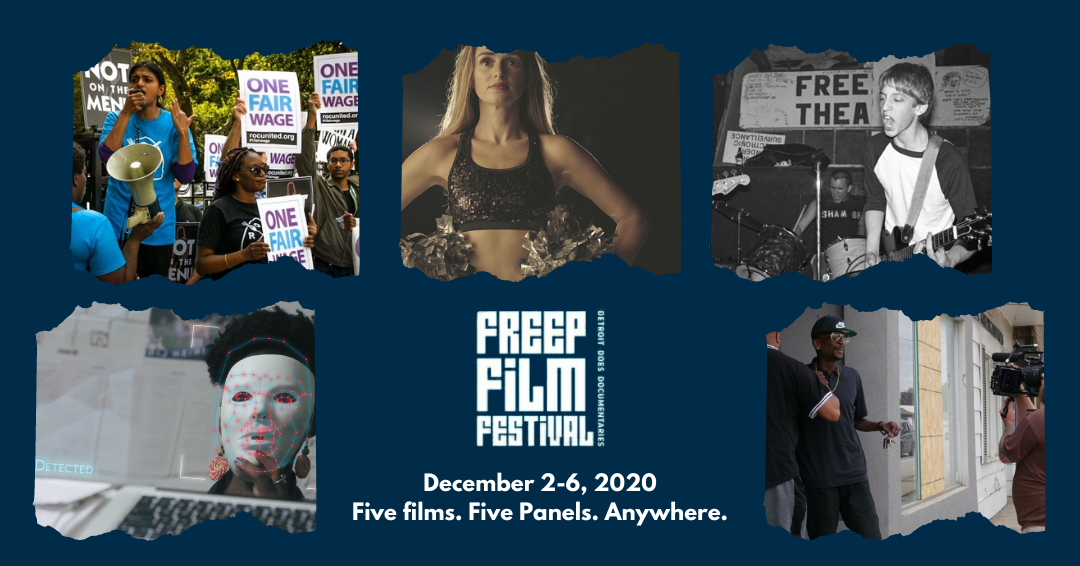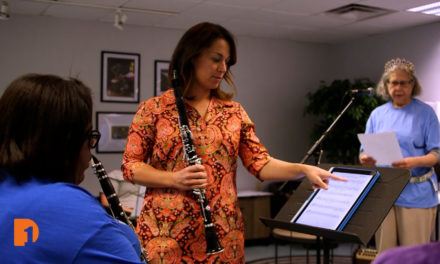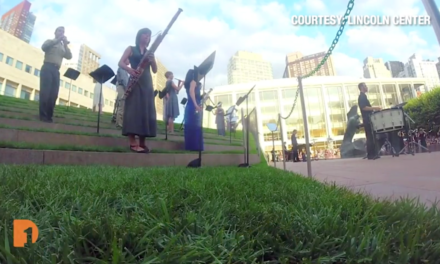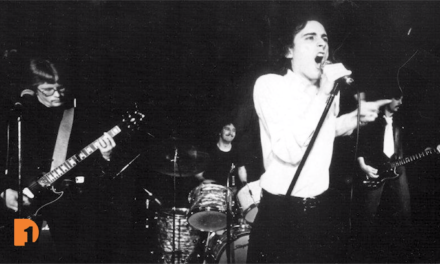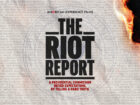DETROIT – December 2, 2020 – Freep Film Festival today kicked off its December virtual event, offering an array of documentaries and live conversations for at-home screening.
The event lineup includes documentaries about the battle for fair wages in the restaurant industry, Detroit’s hardcore punk scene of the early ‘80s, NFL cheerleaders and their fight for respect, Flint’s vibrant hip-hop history and the controversy over facial-recognition technology.
“These five documentaries exemplify what Freep Film Festival is all about,” said Kathy Kieliszewski, the festival’s artistic director. “We’ve got films that take on relevant societal issues that will prompt viewers to think about how technology, policy and attitudes impact us — and those around us. And we also have docs that celebrate Detroit and Michigan’s rich artistic culture and history.”
The quick rundown of the lineup:
“Coded Bias”: This documentary explores the fallout of an MIT Media Lab researcher’s startling discovery that facial-recognition technology does not see dark-skinned faces and women accurately. The use of such facial-recognition tech has been the subject of ongoing controversy in the City of Detroit.
“A Woman’s Work: The NFL’s Cheerleader Problem”: Several NFL cheerleaders bring suit against their employers, claiming unfair treatment, including payment they say amounts to less than minimum wage – despite the strict demands and time commitments of their jobs.
“Dope, Hookers and Pavement: The Real and Imagined History of Detroit Hardcore”: This lively account of Detroit’s early hardcore punk scene offers a candid tribute to an under-examined corner of the city’s storied musical legacy, when a determined throng of bored suburban teens and skater kids converged in the early 1980s in the Cass Corridor.
“Breed and Bootleg: The History and Future of Flint Rap Music”: This documentary about the underappreciated legacy of hip-hop in Flint canonizes one of the forefathers of what became known as Midwest rap — Eric T. Breed, better known as MC Breed, a widely influential figure whose early hit “Ain’t No Future in Yo’ Frontin’” put his hometown on the nation’s rap radar.
“Waging Change”: The activists profiled in “Waging Change,” including some from Detroit, connect the movement to raise the federal minimum wage for restaurant servers and bartenders to the #MeToo movement’s efforts to end sexual harassment.
In addition to the movies, the festival will host live online conversations about all the documentaries, with the panels featuring directors, film subjects and community leaders.
The full December lineup can be explored at www.freepfilmfestival.com. Tickets and passes are on sale now at the same site, with the films available through Dec. 6.
Virtual tickets are $8 per film. A pass for the full December festival is $32.
Early-bird pricing for 2021 passes was also announced, and anyone who purchases a 2021 pass now will receive a free pass to the December virtual event.
The festival has traditionally been held in the spring. Plans for a full-blown, in-person festival in April 2020 were derailed by the pandemic. Earlier this year, the festival revealed that its 2021 edition will move to Sept. 22-26.
About Freep Film Festival:
Freep Film Festival is a documentary-focused festival produced by the Detroit Free Press, which is Michigan’s largest news organization, in cooperation with its business arm, Michigan.com. The festival is centered in downtown Detroit but also holds events at suburban locations. The festival’s focus is on documentaries with strong connections to Detroit or Michigan – though it also books great films without specific local ties. In addition to screening films, Freep Film Festival presents parties, live podcasts, music and educational experiences for the filmmaking community. It also embraces the journalistic mission of the Detroit Free Press, hosting in-depth, issue-based conversations after many of its films.

